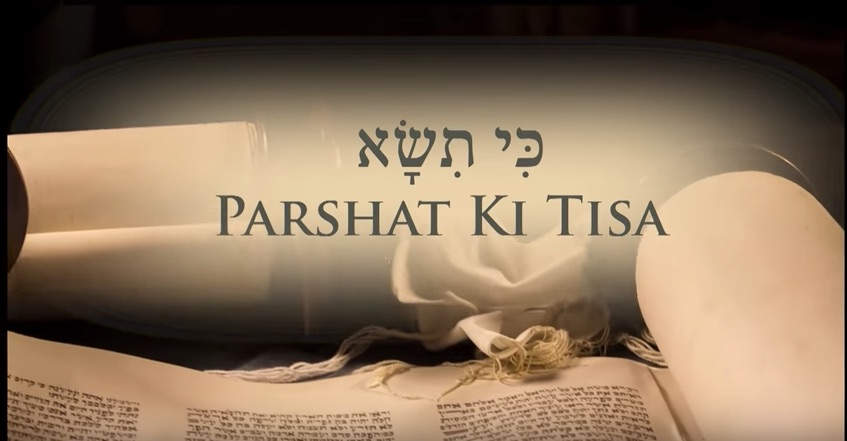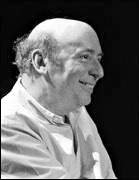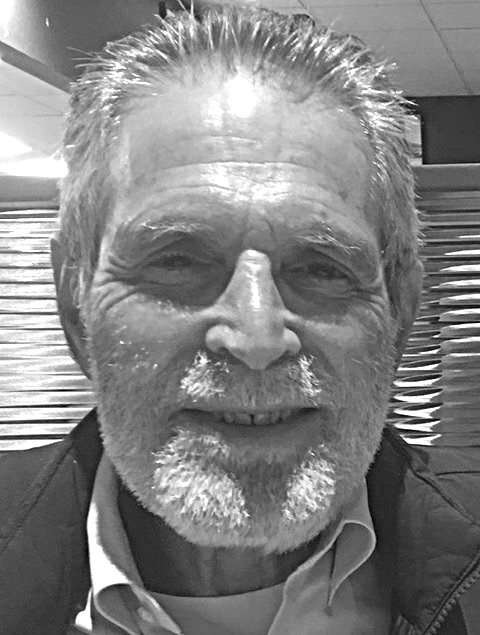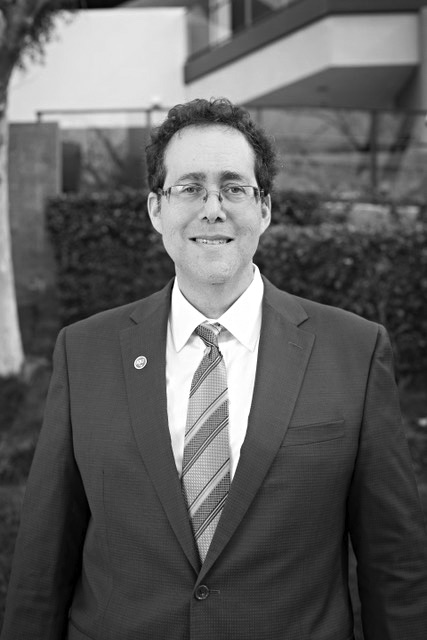 Screenshot from YouTube.
Screenshot from YouTube. PARSHA: KITISA, EXODUS 31: 1-5
“The Lord spoke to Moses: See, I have singled out by name Bezalel son of Uri son of Hur, of the tribe of Judah. I have endowed him with a divine spirit of skill, ability, and knowledge in every kind of craft; to make designs for work in gold, silver, and copper, to cut stones for setting and to carve wood — to work in every kind of craft.”
David Brandes
Screenwriter and Producer

Of all the artists available to God (including the disgraced sinner who built the golden calf), why do you suppose he chose Bezalel? The Master Creator understood that creativity has a life and energy of its own. It’s chaotic, often intuitive, even amoral. In addition — and you can ask any Hollywood writer to confirm this — you just never know how the work is going to actually turn out. Even God had to make some adjustments in his design. After creating his greatest achievement, Adam, God realized that “It is not good for man to be alone.” He summarily added Eve to the mix. And when mankind turned ugly several chapters later, God brought down the great flood so that he could start again.
Because God had a specific design in mind for the holy Tabernacle, He knew that he had to choose an artist who was brilliant but was on the Master’s wavelength. Someone who could make the artistic leap, yet follow the grand intention. This was not, after all, to be an eye-catching designer home. It was to be the exalted home of God — something magisterial, yet warm, familiar. I think it is fair to say that if the brilliant futuristic architect Frank Gehry had lived in that time, he would not have been on the short list.
The reason God specifically chose Bezalel is evident when we examine the two parts of his name in Hebrew: “B’tzel” and “Elohim” — he who dwells in the shadow of God.
Rabbi Stan Levy
Congregation B’nai Horin and The Academy for Jewish Religion

When I was a boy in Hebrew school, my Chasidic teacher taught us to hear Torah as personally addressed to us. Every personal name is a dimension of our own personality and the name of every location is a place in our own life.
This translation renders the Hebrew phrase ruakh Elohim as “divine spirit.” I prefer to translate it differently, as “the spirit of the force of life.”
The ruakh Elohim in this passage echoes the the ruakh Elohim described in the opening verses of Genesis, the force of life that permeated the waters of the Earth. This week’s Torah portion teaches us that every person is encoded with ruakh Elohim, the spirit of the force of life. It is part of our DNA, the spiritual DNA of God. It is how each of us is created in the image and likeness of Elohim, the force of life. With every breath we take, we are infusing ourselves with divine spiritual energy. Each of us is a living embodiment and expression of the presence of the Divine in our world.
These verses teach us that to be a wise person, to know how precious, fragile and time-limited life is, we need a wise heart. And we need to integrate our knowledge and intuition into our hearts in order to attain hearts of wisdom.
Finally, regardless of what our work in the world is, we should, as Albert Einstein said, lead our lives as works of art.
Rabbanit Alissa Thomas-Newborn
B’nai David-Judea Congregation

God gives Bezalel wisdom, understanding and knowledge. But these seem to just be synonyms. Why does the Torah use these three specific words?
In Tanya, the Alter Rebbe refers to these same three words as levels of connection in learning Torah. They are referred to as CHaBaD (cHochmah, Binah and Daat). Chochmah is a spark, an interest that pulls us to want to know more. Binah is the process of understanding the spark, going deeper to comprehend. And Daat is the point at which an idea becomes a part of us — integral to who we are. This learning process is a gift because it enables us to connect with God at our core.
With this in mind, we see that the words in our verse are not three random synonyms. God provided Bezalel with three life-altering tools and through them, he merited to be known as Bezalel, “in the shadow of God.” He entered God’s embrace through Chochmah, Binah and Daat — through exploring and mastering God’s Torah.
But Bezalel is not the only one to have access to these tools. We can all find our spark in Torah (Chochmah), choose to learn more in depth (Binah) and make it a part of our lives and selves (Daat). It’s the process we would go through with anything we are committed to — with anyone we love. Let’s choose to do the same in our Torah lives and in our relationship with God. This week, find your spark!
Rabbi Michelle Missaghieh
Temple Israel of Hollywood

Just like Bezalel, who worked in “every kind of craft,” children in school are expected to be good at everything: math, science, physical education, English, a foreign language, history, reading, writing, art, interpersonal skills, organizational skills and more. They are graded and judged. It’s exhausting. We set up unreasonable expectations for our youth: to be super-accomplished, résumé-armed, college-bound teens who are also “do-gooders,” caring and ethical.
No wonder many teens suffer from chronic anxiety and depression. No wonder our kids feel like they’re cracking under pressure and sometimes self-medicate with alcohol or drugs, or even take their own life.
In this week’s portion, God senses that it’s the exceptional person, Bezalel, who could paint and sculpt, draw and weave, carve and build with wood, solder metals and dye wool — because he was singled out by God and endowed with the divine spirit. There are artists who can do this today, but they are the exception, not the rule.
Things used to be different. For centuries, children would find themselves a mentor and then learn a trade. Want to make shoes? Find a shoemaker and study his craft. Want to farm land? Find a farmer and shadow him in the field. Want to sell goods around the world? Attach yourself to a traveling salesman and dream big. As adults, we don’t require one another to be proficient in “every kind of craft”; instead we allow ourselves to zero in on our strengths and pursue the talents and skills that interest us. Why can’t we allow our teens that same flexible mindset? Expecting that any person excel in “every kind of craft” is burdensome and potentially destructive.
Rabbi Bradley Shavit Artson
American Jewish University

How powerful that “wisdom” is the attribute that God uses for an artist, for someone who has the talent, discipline and has put in the time to master a craft. Judaism has never been about disembodied thought, about platonic concepts or values distilled and separate from life. Instead, Torah recognizes that wisdom is about living in the world, with the world. And that we, like Bezalel, are invited to live so mindfully that we — like God — become capable of creating.
When we intuit life deeply, when we resonate with its possibilities and opportunities, then we can birth new realities. For Bezalel, that new reality was a beautiful, multicolored venue where the Children of Israel would be able to be aware of God’s presence. Using fabrics, pelts, metals and woods, in a raucous blend of texture and hues, Israel’s mindfulness of God erupts out of mixed colors, sensations of touch and sight and (later) smell. All our senses praise God, who dwells with us in our worldliness. Art is thus placed at the very center of Jewish spirit; creativity and craft open our senses to the ways that the entire world is filled with God’s glory.
There are so many ways to bring people to the portal of the Divine. Surely, when we bring life wisdom to bear — in how we treat one another, fight for dignity and all creation, when we make new and beautiful objects to heighten our awareness, lift each other’s spirits or to soothe broken hearts — then we take our place, like Israel’s ancient artists, as God’s skilled and wise creators.























 More news and opinions than at a Shabbat dinner, right in your inbox.
More news and opinions than at a Shabbat dinner, right in your inbox.